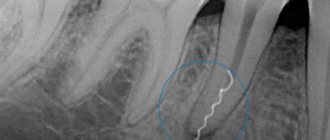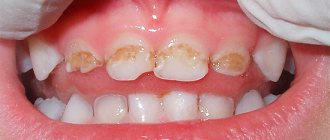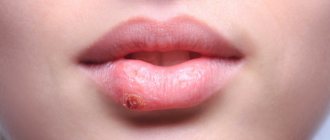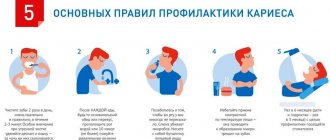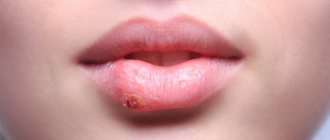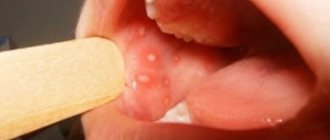In cases where bad breath is bothersome, the first thing people pay attention to is the oral cavity. They also remember what products were consumed and what could cause this situation. It’s good when everything gets by with the fact that the trouble turns out to have happened because of the onion or garlic that was eaten. But it happens that the smell is a symptom of stomach diseases. In such cases, you should pay attention to your health and eliminate the cause.
What does an unpleasant odor mean?
Halitosis is a phenomenon of bad breath.
This phenomenon of bad breath is called halitosis. In fact, there are quite a few reasons that can cause such trouble.
But, if we take into account that this problem is related to the stomach, it is worthwhile to find the cause and possible disease as quickly as possible.
A very common problem that contributes to bad breath is problems with the digestive system. Everyone knows about such a disease as gastritis, many are even familiar with it. This is the first, most common disease, which gives such a symptom as halitosis.
Also, a disease such as an ulcer gives the same symptoms. Accompanied by bad breath, there may be dysbacteriosis, flatulence, constipation, diarrhea, gastroenterocolitis, duodenitis. There are stomach diseases that are caused by bacteria, viruses, allergies, all of which can cause halitosis.
This symptom can occur due to both food and drug poisoning.
Gastroesophageal reflux
Gastroesophageal reflux is a condition in which, due to disturbances in the functioning of the gastrointestinal tract, gastric juice refluxes into the esophagus. The hydrochloric acid contained in this secretion emits a specific odor that is felt when breathing.
A particularly clearly unpleasant “smell” from the patient’s mouth is felt immediately after he wakes up. After all, during sleep a person is in a horizontal position, which means that digestive juice can flow into the esophagus absolutely unhindered.
Other characteristic symptoms of reflux are specific stomach pain, nausea and frequent belching. It is also worth noting that the described disease rarely occurs on its own. It usually accompanies gastritis and develops against the background of its exacerbations.
Gastritis
Gastritis can cause bad breath.
But the reason may be a person's diet. Namely, this applies to poor nutrition, non-compliance with the regime, quick dry snacks, and alcohol.
All this contributes to inflammation of the mucous membrane, thereby disrupting the process of digesting food, as a result of which a person gets halitosis.
But this, as already mentioned, is only a symptom, the problem lies in gastritis, which is simply inevitable with this method of eating.
Which doctor should I contact?
In order to completely eliminate the problem, it is necessary to establish from what provoking factor it appears. To do this, the patient must visit a dentist and a gastroenterologist. Diagnostics in dentistry is carried out with a special device - a halimeter. Pathogenic bacteria are identified using a microbiological study of the composition of plaque on teeth. The dentist may prescribe blood tests and x-rays. Treatment of chewing organs and gum tissue involves complete sanitation of the oral cavity. Treatment of carious lesions and the fight against inflammatory processes are mandatory. A comprehensive approach to solving the problem may be required. Today, technologies are often used that provide oxygenation to the oral cavity. After all, oxygen inhibits anaerobic flora.
If after the procedures your breath smells like vinegar, you need to check your gastrointestinal tract. The doctor may prescribe endoscopy, ultrasound of the abdominal organs, and computed tomography. The treatment program may include drug therapy, physiotherapeutic procedures, a balanced diet, and immune support. Acidity neutralizers, histamine receptor blockers, antispasmodics and prokinetics, enzymes, enterosorbents, and probiotics are prescribed. It is important that the patient does not delay going to the doctor. Timely treatment prevents complications from occurring.
What will help solve the problem?
If you have gastritis, you need to seek help from a specialist.
If this problem is not related to the regime and the digestive process, but is a disease, treatment and prevention of diseases is needed under the supervision of a doctor.
With such diseases, it is very important to consult a doctor for help, since prolonging the disease can lead to more serious consequences. In such situations, diseases require long-term treatment.
It is also worth remembering that not all medications can be taken without consulting a doctor and a full examination. Most often, for gastritis, medications are prescribed that reduce acidity and help in the regeneration of the mucous membrane.
There may be cases when antibiotics and painkillers are needed, it all depends on the disease itself and the stage.
Chalazia cardia
Gastroesophageal reflux is the reflux of gastric juice into the esophagus.
The cardia is the gastric muscular valve that connects this organ to the esophagus.
Its dysfunction (chalasia) leads to the fact that digestive juices enter cavities not intended for them. Usually this is the esophagus.
As a result, a condition with symptoms reminiscent of gastroesophageal reflux occurs.
Unlike the mentioned disease, chalazia cardia develops as an independent disease. This disorder has nothing to do with gastritis.
Diet
The diet will help improve digestion.
There are general rules that can significantly improve digestion and help with stomach pathologies, thereby getting rid of unpleasant symptoms. The first thing you should do is adjust your diet:
- Be sure to include healthy foods;
- Eliminate fast food;
- Refrain from taking processed foods;
- You should not eat spicy food;
- Carbonated drinks are prohibited.
The diet itself should consist of frequent meals, but in small portions. When creating a menu, you should pay attention to the following products:
- Be careful when consuming sugar and carbohydrates, if possible completely eliminate them from the diet. The same applies to confectionery products.
- As for fatty foods, they should be consumed in small quantities.
- Also reduce your consumption of fried and salty foods.
- It is better to limit yourself to drinking coffee and tea during the treatment period. But you should avoid products such as milk and cottage cheese.
- If possible, consume meat in limited quantities.
- Everyone knows about the benefits of fruits, but few people know that they cause fermentation and bloating, so you should exclude plums, grapes, and sour apples.
- But fermented milk products will be very useful. They have a beneficial effect on digestive processes and restore the balance of microflora. It is worth paying attention to those products that contain acidophilus and bifidobacteria.
- Vegetables and fruits contribute well to normal digestion, with the exception of those that cause fermentation. In addition, they saturate the body with vitamins.
- Do not forget about drinking water, which is very important and necessary for the body.
How to prevent bad breath?
To avoid an unpleasant problem, prevention is necessary.
- First of all, high-quality oral hygiene. It includes not only brushing your teeth with a brush and toothpaste twice a day, but also using antibacterial rinses, dental floss, and sometimes an irrigator. To clean your tongue from plaque, it is better to use a plastic scraper rather than a brush.
- Once every 5-7 months, you must visit the dentist to remove dental plaque and conduct an examination. Almost any disease of the teeth and gums can be detected at the initial stage, without waiting for inflammation, pain and unpleasant odor.
- Experts recommend drinking 1.5-2 liters of clean water per day. This will help avoid dehydration and dry mouth.
- A healthy diet will keep your breath fresh. In the morning, it is better to give preference to oatmeal, which promotes salivation. Do not overdo it with protein and fatty foods, dairy products, coffee and spices, but be sure to include apples, oranges and celery in the menu.
- Regularly undergo preventive examinations with doctors and get tested.
Traditional methods
Cabbage juice will help cure gastritis.
You can use traditional methods, which are quite effective. But when using them, it is important to follow the dosage recommendations.
An important factor is also that any medicinal plant has its contraindications.
For these procedures to be beneficial, you need to study information about the medicinal plant. If the disease is gastritis, you can use the following methods:
How to determine if you have halitosis
There are several ways to check your breath for freshness yourself:
- Breathe into cupped palms and smell the exhaled air.
- Use a cotton pad to wipe the surface of the tongue and assess whether there is a smell.
- Lick a clean spoon or the back of your hand, let the saliva evaporate and smell the surface.
It is better to carry out such tests in the late afternoon, 2-3 hours after eating and, of course, before brushing your teeth. If you have halitosis, you will definitely feel it.
It is important to know
It is worth remembering that any symptoms go away only after complete relief from the disease. If you do not start treating the disease itself, complications may appear that will cause more serious problems. All diseases associated with the stomach require examination and individual treatment. Only a doctor can prescribe the correct treatment.
All the methods described above are quite effective, but it is worth considering that they may not be suitable for everyone. In addition, there are different stages of the disease that require a special approach. A proper and nutritious diet can bring many benefits.
If you use advice on what to refuse and what to pay attention to, the treatment will be much more effective. By combining useful information, you can find the fastest and most enjoyable treatment method. Do not forget about walks in the fresh air, which have a very beneficial effect on the digestive processes.
Diaphragmatic hernia
The diaphragm, separating the chest and abdominal cavities, is equipped with a special opening. The esophagus passes through it. However, with a hernia of the diaphragm, the described hole becomes too wide. Because of this, the esophagus, normally partially located in the abdominal cavity, moves higher.
What are the consequences of such a violation? Due to the uncharacteristic bends of the esophagus, as well as its specific location, the likelihood of gastric juice entering this organ increases significantly. Well, we have already mentioned what this leads to when talking about gastroesophageal reflux and chalasia cardia.
Does inflammation in the sinuses lead to bad breath?
Since the air is exhaled through the nasal cavity, it physiologically communicates with the paranasal sinuses; in the event of their purulent inflammation, an unpleasant odor is mixed with the inhaled portion of air. Sanitation of the oral cavity or treatment of stomach problems will not help in this case, since the source of the odor is outside the oral cavity.
Inflammation in the antrum of the maxillary sinus is caused by recurrent bacterial infections. Quite often, staphylococcus becomes such a “bad-smelling” agent.
Breath freshness assessment
You can get used to the smell of your exhaled air, but those around you will feel it. There are tests to determine the freshness of your breath:
- Bring your hand close to your face and exhale deeply through your mouth. Immediately smell the air.
- Walk around for a few minutes in a disposable mask: the smell that the interlocutors feel will become audible.
- Lick the spoon, let it dry, then smell it.
- Clean the spaces between your teeth with dental floss and smell it.
But these methods are subjective, because not everyone is able to evaluate their own smell. It’s good if loved ones report a problem. And if not?
For a more accurate diagnosis, you can use a halimeter - a device for determining the composition of exhaled air. It shows the concentration of ammonia and sulfur-containing compounds. There are portable devices for self-diagnosis and large devices for examination in clinics.
Also in dental clinics, microbiological examination of the microflora of the oral cavity is used to detect halitosis.



